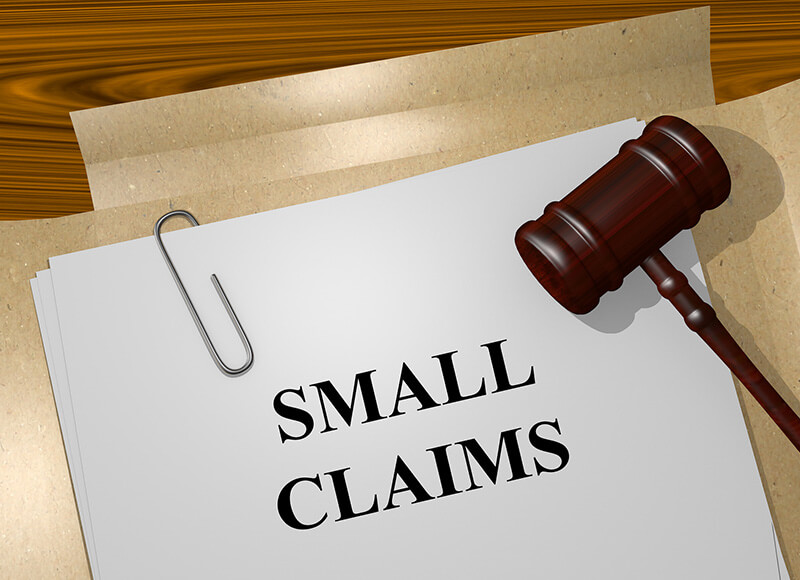Home » Our Services » Small Claims Court

Small claims courts provide a speedy remedy to recover damages for small amounts of money. You can file a case in a small claims court if you are trying to recover an amount that is less than the specified monetary limit of your state.
Small claims court cases often involve unpaid loans, property damages caused by accidents or trespassing, landlord-tenant disputes like failure to return a deposit or invalid eviction, payment for work performed, and breach of contract.
The purpose of a small claims court is to simplify court procedures for recovering damages and make them straightforward and inexpensive.
In the State of Indiana, the maximum amount for small claims as prescribed by law is limited to $6,000, with the exception of Marion County, where the maximum amount is limited to $8,000. If you are at least 18 years old and the amount you are seeking to recover is within the limit prescribed by law, then you can file a claim in a small claims court.
To file a case, the complainant must obtain the necessary forms and pay the required fees. Your complaint must have the necessary details, including the name and address of the person or business you are suing, the date the claim arose, and the amount you intend to ask for in damages.
After going through all the paperwork, the case must be filed in the proper Indiana court to comply with jurisdictional rules. Small claims in Indiana can be brought in one of Indiana’s Circuit, Superior, or County Courts. If you file with the wrong court, your case can be dismissed on that ground. The case may be filed in the county where the defendant resides or is employed, where the transaction took place, where the obligation arose, or where the property is located.
The law also sets a time limit for you to bring a lawsuit. In the State of Indiana, the prescriptive period is 10 years for cases arising from written contracts, 2 years for cases arising from oral contracts, and 2 years for injury and personal property damage cases. Know, however, that there may be other instances that could legally stop the prescriptive period from running, but only temporarily.
While it is true that litigants in small claims courts do not need lawyers, Indiana law also allows for litigants to seek presentation if they desire it. It is still best to consult a lawyer, especially when dealing with specific legal matters related to your claims. For example, if you are going after a tenant, you might want to seek advice from a lawyer who specializes in landlord-tenant disputes. While the process is simpler compared to those in other courts and cases, having a person who is well versed in the law and the ins and outs of legal procedures can be a big help to your case.
The Law Office of Maxine E. King will help you build a stronger case so that you can recover what is rightfully yours. She can help you with the following:
Maxine E. King devotes both time and effort to make sure that her clients are efficiently and effectively represented and aided in court so that their case could be presented in the best possible way. Get in touch with the law office of Maxine E. King today and learn about the legal remedies that are available to you!
Want to get in touch? I'd love to hear from you. Here's how you can reach me...
Client base includes parents, small business owners, clergy and nonprofits. Known and appreciated for Core competencies.